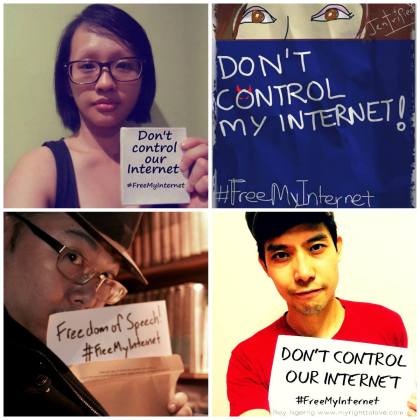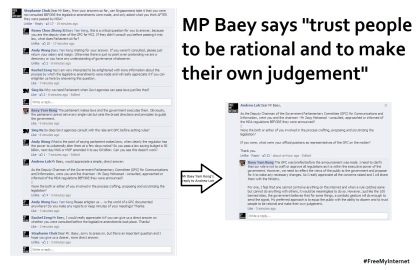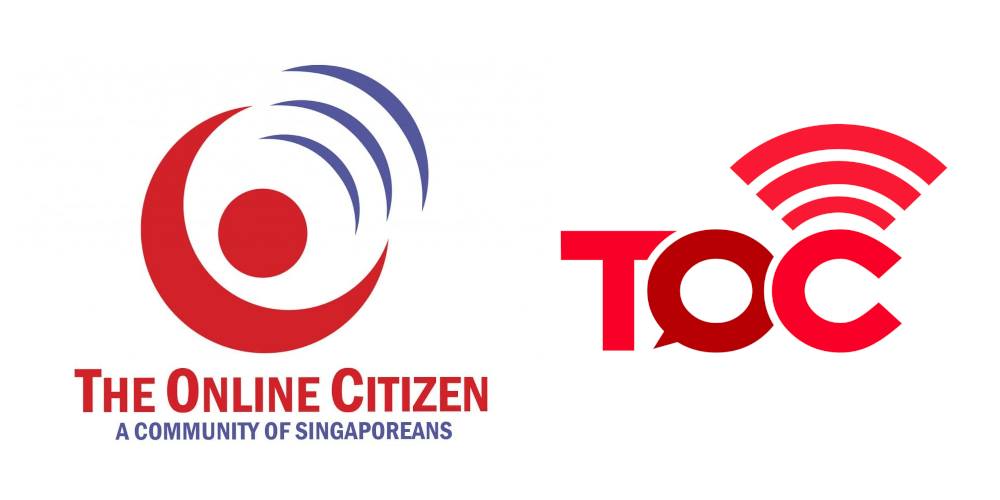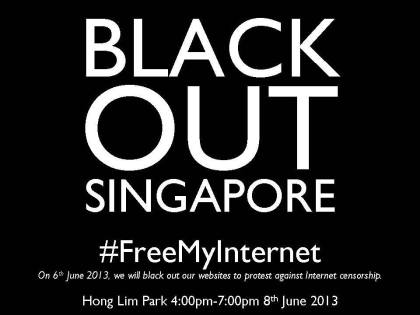(Background: On Thursday 16 September 2021, one of Singapore’s oldest political website The Online Citizen suspended its website and social media account under the directive of Infocomm Media Development Authority (IMDA). TOC’s editor Terry Xu has since filed a judicial review against IMDA’s directive.)
Not many emails from strangers can change one’s life. There have been two in my life, and they were received a day apart in the year 2007.
The first email was from Andrew Loh, asking if I would like to write for The Online Citizen (TOC). The other email notified me that someone (from a collective of film makers and activists) had left a comment on my now defunct blog on Multiply.com. Little did I know then, that it was the beginning of my life as a human rights activist in Singapore.
TOC’s contribution to socio-politics in Singapore
Being part of TOC during its founding years was important for my development not only as a human rights activist, but as a person. Working as a team of volunteers, we touched on a variety of issues – the Internal Security Act (ISA), homelessness, the increase in public transport fares, and Bills proposed in Parliament to name a few. We also interviewed and featured politicians from opposition parties which was, and still is, a rather uncommon practice in the mainstream media.
The experience solidified my long held belief that human stories are crucial to advocacy and the existence of independent media is necessary to provide a platform for the marginalised and political minorities.
As a human rights activist, TOC has been a crucial platform for advocacy. TOC has also been a great ally, and they do more than publish articles. They walk the road, collaborate on events, and become an integral part of these campaigns. In their articles and videos, they rightfully humanize those whose stories have been neglected by the mainstream media – the inmates on death row and their families, the communities living homeless on Sembawang Beach, domestic and migrant workers, human rights activists and lawyers, and former detainees who were detained for months and years without a trial.
Without TOC, the lived experiences of these people would probably have remained hidden in obscurity on campaign blogs. The society’s consciousness of what lies beneath our shining skyscrapers and apparent economic stability would have been so much poorer.
Over the past decade, there have been many criticisms of TOC. While I agree that TOC is not perfect just like anything else, it has played a role in liberalizing political thought and expression with former editors and writers leaving to create political websites with different editorial styles and political perspectives. This has, based on personal observations, encouraged citizen journalism and a more politically expressive society.
The truth is, without TOC and its counterparts, there will be no political diversity in the way socio-political matters are covered and discussed in Singapore.
Independent media vs. Singapore’s licensing regime
One of the greatest challenges to TOC and its counterparts has been Singapore’s licensing regime which was amended in 2013 to mandate that all websites covering Singapore news and commentary must register and come under the regulation of IMDA.
While a few volunteer-run political websites decided to close shop as there was no way they could afford the security bond, TOC managed to register and took great pains to declare their funds at end of each financial year. To sustain itself, TOC began running on a subscription model (i.e., commercial revenue) in 2014.
It hasn’t been a smooth ride and here we are today – IMDA suspended the website’s class license based on the allegation that TOC has failed to declare every single donor to its operations. This is despite the fact that TOC has declared its full revenue in the financial year of 2020, and have responded to IMDA’s questions accordingly. For more information, please see this post.
We cannot shield away from the fact that the entire media licensing regime in Singapore, is an obstacle for independent political websites, many of which are run by volunteers passionate about making Singapore a more humane and inclusive place to live in.
Embedded in the regulations, is the notion that anyone who is strongly critical of the government is potentially colluding with foreign forces to destroy Singapore’s “political stability”. This simplistic propaganda of “Us vs. Them”, first constructed by the late Lee Kuan Yew to quash his critics and political opponents, continues to be used as an excuse to demonise, shut down, and punish the ruling party’s strongest critics. This has caused some serious implications on our right to freedom of expression, as the allegation of being a foreign agent comes with consequences even if it hasn’t proven to be true (e.g., detention without trial under the ISA).
Moving forward: We need to defend our right to be political
In short, I have come to view TOC as a movement beyond its existence as a political website which its current editor Terry Xu has been committed against all odds to keep alive. In the same vein, the suspension of TOC is no longer just about the website or Terry. It is an attack on independent media and freedom of political discussions in Singapore.
We will never become a politically matured and inclusive society if the government continues to muffle critics using unjust laws instead of being resilient to criticisms, and welcome them as public feedback to improve policies and social infrastructures. This is why we must continue to defend our political right to question and speak up. It is a movement worth fighting for, and we should do it before our country regresses into one that makes George Orwell’s 1984 a nightmarish reality.

Join the campaign with other Singaporeans to let the MDA know that we want to protect our freedom to use the Internet.
*****
Here’s what you can do:
(1) Write what you want to say anywhere – a piece of paper, cardboard, your hand or shirt.
(2) Write #FreeMyInternet somewhere.
(3) Take a photo of yourself, with the words.
(4) Upload your photo on the #FreeMyInternet Facebook page and tag your friends on it! https://www.facebook.com/FreeMyInternet
(5) Change this to your Facebook profile picture!
The #FreeMyInternet is a movement by everyone. The more photos we have, the stronger the voice we have.
Filed under: #FreeMyInternet, Announcements, Media Development Authority, Singapore
 #FreeMyInternet is encouraged by the success of our first campaign against the new MDA Licensing Regime, which many media commentators see as the turning point in Singapore’s media regulatory landscape in Singapore.
#FreeMyInternet is encouraged by the success of our first campaign against the new MDA Licensing Regime, which many media commentators see as the turning point in Singapore’s media regulatory landscape in Singapore.
More than 4,000 signed our online petition (and still counting), more than 150 blogs participated in our online blackout, and an estimated total of 2500 participated this afternoon in Singapore’s largest blogger-led protest.
But don’t take just our word for it. When Minister for Manpower Tan Chuan-Jin went on national television to explain the Licensing Regime, all we saw was a steady climb of those who think the new regulation would limit online news content, from 50% to a landslide 73.9%.
These are all clear signs that Singaporeans from all walks of life, be they writers or readers of online content, do not believe the explanations offered by the government, are against the MDA Licensing Regime, and are demanding for it to be withdrawn.
The success of the campaign is no mean feat. #FreeMyInternet came together at a few days’ notice, and the three-prong campaign was organised within a week and a half. Given the spontaneous and leaderless nature of the #FreeMyInternet movement, this is a remarkable achievement.
Moving ahead, the #FreeMyInternet movement will continue to call for the withdrawal of the Licensing Regime.
In addition, there is much more public awareness that needs to be done. Because of the manner in which the Licensing Regime was slipped into legislation, there has been very little opportunity to educate the public on why the Licensing Regime is so dangerous.
In the weeks to come, we will roll out material and programmes to educate members of the public and Members of Parliament about why the Licensing Regime needs to be withdrawn.
We do not rule out a dialogue with the government, but this dialogue needs to be a discussion on how the withdrawal of the Licensing Regime will take place, and should be a dialogue about how de-regulating the media environment can best be done to benefit Singaporeans.
The trust that was broken by the hasty introduction of the Licensing Regime can only be restored by the withdrawal of the Licensing Regime. A government that doesn’t trust its people is a government that will lose the trust of its people. We hope our government will keep their faith with all Singaporeans.
Filed under: #FreeMyInternet, By Rachel Zeng, Media Development Authority, Singapore
Personally, I do not believe that any authority should be given that power to define and decide for us, information or opinions that are safe or harmful. In fact, should anyone have any problems with the article(s) they have come across, they should speak up against it or share their own perspectives. This is how free speech works. Only through the process of being exposed to different perspectives, a society progresses intellectually. Since we do not get that from our mainstream media, or through our education system, we should do our brains a huge favour by letting the opinions remain as diverse as they can online. With that, I maintain the stand that the whole licensing regime should be dropped.
Filed under: #FreeMyInternet, By Rachel Zeng, Media Development Authority, Singapore, Videos
Blogs in Singapore held an online protest against Media Development Authority’s new licensing framework and here is a video montage of the screen caps.
Join #FreeMyInternet at Hong Lim Park on 8 June from 4-7pm for an offline protest against the new licensing framework.
Filed under: #FreeMyInternet, Announcements, Media Development Authority, Singapore
 City-state Undercuts Status as Financial Center by Expanding Media Censorship to Web
City-state Undercuts Status as Financial Center by Expanding Media Censorship to Web
(New York, June 7, 2013) – The Singaporean government should withdraw an onerous new licensing requirement for online news sites, Human Rights Watch said today. The new rules will further discourage independent commentary and reporting on the Internet in Singapore.
On May 28, 2013, the Media Development Authority, which is controlled by the Ministry of Communications and Information and is responsible for regulation of Singapore’s media and publishing industry, announced that all “online news sites” that reach 50,000 unique viewers per month over a two-month period must secure a license to operate. The licensing regime took effect on June 1, and the Media Development Authority released a list of 10 websites that will initially be impacted, including AsiaOne.com, Business Times Singapore, and Yahoo! News Singapore.
“Singapore’s new licensing requirement casts a chill over the city-state’s robust and free-wheeling online communities, and will clearly limit Singaporeans’ access to independent media,” said Cynthia Wong, senior Internet researcher at Human Rights Watch. “Websites will be forced into the role of private censors on behalf of the government.”
The new licensing rules seem intended to impose another check on popular websites more than to reduce any genuine harms, Human Rights Watch said. As a condition of the license, websites must comply within 24 hours with any requests from the Media Development Authority to remove content that the government deems objectionable. Websites are also required to post a S$50,000 (US$40,000) performance bond to ensure compliance. “News site” is defined broadly to include any site containing news or any matter or public interest related to Singapore, in any language – even if content is provided by a third party, as with readers’ comments on a website.
On May 30, several major independent websites in Singapore released a joint media statement in protest, contending that the new rules would “reduce the channels available to Singaporeans to receive news and analysis of the socio-political situation in Singapore.” The statement also said that the new rules would disproportionately harm citizen journalists and non-commercial, volunteer-run blogging platforms, who will not be able to afford the performance bond.
A group of bloggers have launched a campaign using the Twitter hashtag #FreeMyInternet, and on June 6, participants blacked out their websites to oppose the new rules. Bloggers have also organized a public event in Singapore’s Speakers’ Corner in Hong Lim Park on June 8. Online commentators have expressed concern over the breadth of the definition of “online news sites,” warning that it could sweep in blogs that discuss a wide range of issues, and websites that enable users to discuss online content.
In response to criticism, the Media Development Authority clarified on its Facebook page on May 31 that, “An individual publishing views on current affairs and trends on his/her personal website or blog does not amount to news reporting.” However, in a separate statement, the Authority undermined this claim by asserting that, “If they [blogs] take on the nature of news sites, we will take a closer look and evaluate them accordingly.”
The Media Development Authority also asserted that the framework is “not an attempt to influence the editorial slant of news sites” and that it will only step in “when complaints are raised to [their] attention, and [they] assess that the content is in breach of the content guidelines and merits action by the website owner.”
Singapore’s constitution guarantees the right to freedom of expression, with exceptions for broadly worded restrictions in the name of security, public order, morality, and racial and religious harmony. Print and broadcast media are also subject to annual licensing requirements. In November 1997, the Media Development Authority introduced an Internet Code of Practice, which requires Internet service providers to restrict access to prohibited material and would apply to websites subject to the new license. The Code of Practice restricts any content that is “against public interest” or offends “good taste or decency,” including “material that advocates homosexuality or lesbianism.”
The definition of what might be deemed “against public interest” is vague and can be used arbitrarily by the government, leaving the licensing regime and content regulations open to selective enforcement and abuse, Human Rights Watch said.
Lesbian, gay, bisexual, and transgender (LGBT) rights activists in Singapore have also criticized media censorship laws because they create a skewed portrayal of LGBT individuals in local, mainstream media. Given that Singapore still criminalizes male same-sex relations, instituting a 24-hour takedown requirement for “material that advocates homosexuality or lesbianism” on popular websites will only exacerbate the problem, Human Rights Watch said.
Human Rights Watch said that the licensing regime is inconsistent with international human rights standards on freedom of expression. Article 19 of the Universal Declaration of Human Rights, widely recognized as customary international law, provides that “[e]veryone has the right to freedom of opinion and expression; this right includes freedom to hold opinions without interference and to seek, receive and impart information and ideas through any media and regardless of frontiers.”
In his May 2011 report to the United Nations Human Rights Council, the special rapporteur on the promotion and protection of freedom of opinion and expression, Frank La Rue, wrote that registration and licensing requirements “cannot be justified in the case of the Internet.”
“Singapore is placing its status as a world-class financial center at clear risk by extending its record of draconian media censorship to the digital world,” Wong said.
For more Human Rights Watch reporting on Internet freedom, please visit:
http://www.hrw.org/topic/free-speech/internet-freedom
For more Human Rights Watch reporting on Singapore, please visit:
http://www.hrw.org/asia/singapore
For more information, please contact:
In Washington, DC, Cynthia Wong (English): +1-917-860-3186 (mobile); or wongc@hrw.org. Follow on Twitter @cynthiamw
In New York, Mickey Spiegel (English): +1-212-216-1229; or spiegem@hrw.org
In Bangkok, Phil Robertson (English, Thai): +66-85-060-8406 (mobile); or robertp@hrw.org. Follow on Twitter @Reaproy
In Washington, DC, John Sifton (English): +1-917-838-9736 (mobile); or siftonj@hrw.org. Follow on Twitter @johnsifton
In San Francisco, Brad Adams (English): +1-510-926-8443 (mobile); or adamsb@hrw.org. Follow on Twitter @BradAdamsHRW
Filed under: #FreeMyInternet, Announcements, By Rachel Zeng, Media Development Authority, Singapore
Here is a quick lunchtime posting:
Come 6 June 2013, 0000Hrs, this blog will blacked out for 24 hours in protest against the new licensing framework implemented by the Media Development Authority.
If you would like to join us in blacking out your blog, do visit www.freemyinternet.com.
Cheers! 🙂
Filed under: #FreeMyInternet, By Rachel Zeng, Media Development Authority, Singapore
From #FreeMyInternet’s engagement with MP Baey Yam Keng during his live chat on Facebook. Click on the picture for an enlarged view. You can also read the conversation here.
 Related Links:
Related Links:
#FreeMyInternet calls on Mr Baey and all MPs to push for the withdrawal of the licensing regime
Petition for the immediate withdrawal of the licensing regime
#FreeMyInternet – Movement against the licensing requirements for online media (Event page on Facebook)
Filed under: #FreeMyInternet, Announcements, Media Development Authority, Singapore
 On 2 June 2013, between 10 p.m. – 12 midnight, PAP MP Baey Yam Keng became the first Member of Parliament (MP) to try to directly answer the questions concerned Singaporeans have about the new Media Development Authority (MDA) licensing regime. Mr Baey is an MP for Tampines GRC and the Deputy Chairman of the Government Parliamentary Committee (GPC) on Communications and Information.
On 2 June 2013, between 10 p.m. – 12 midnight, PAP MP Baey Yam Keng became the first Member of Parliament (MP) to try to directly answer the questions concerned Singaporeans have about the new Media Development Authority (MDA) licensing regime. Mr Baey is an MP for Tampines GRC and the Deputy Chairman of the Government Parliamentary Committee (GPC) on Communications and Information.
#FreeMyInternet appreciates his candour and good grace in stepping forward, but regrets that Mr Baey was unable to address a key concern about the new legislation: the license regime was not put to Parliament as a whole before it became law.
Mr Baey was also unable to answer a key question that forms a main theme of the #FreeMyInternet campaign: does our government trust Singaporeans to make up their minds on the type of information they want to consume?
Mr Baey’s inability to defend the licensing regime confirms our position that its withdrawal is the only correct way forward. We appreciate Mr Baey’s confirmation that the licensing regime was not his “preferred approach”, and hope that his words will be reflected in the actions he is to take when Parliament next sits.
We continue to call on Mr Baey and all MPs to push for the withdrawal of the licensing regime.
Filed under: #FreeMyInternet, Announcements, Media Development Authority, Singapore
MEDIA STATEMENT – 1 JUNE 2013
 The blogging community – collectively called Free My Internet, will be organising a protest and online blackout next week against the new licensing requirements imposed by the Media Development Authority, which requires “online news sites” to put up a “performance bond” of $50,000 and “comply within 24 hours to MDA’s directions to remove content that is found to be in breach of content standards”.
The blogging community – collectively called Free My Internet, will be organising a protest and online blackout next week against the new licensing requirements imposed by the Media Development Authority, which requires “online news sites” to put up a “performance bond” of $50,000 and “comply within 24 hours to MDA’s directions to remove content that is found to be in breach of content standards”.
We encourage all Singaporeans who are concerned about our future and our ability to participate in everyday online activities and discussions, and to seek out alternative news and analysis, to take a strong stand against the licensing regime which can impede on your independence.
We urge Singaporeans to turn up to send a clear message to our elected representatives to trust the Singaporeans who elected them.
Singaporeans can support us in three ways:
1) Join us at the protest.
Date: 8 June 2013
Time: 4.00pm – 7.00pm
Venue: Speakers Corner, Hong Lim Park
2) If you are a blogger, join us in an online blackout by closing your blog for 24 hours, from Thursday 6 June, 0001 hrs to 6 June, 2359 hrs. You can choose to create your own blackout notice, or use http://www.freemyinternet.com we have created for your convenience. When you reopen your blog, write your account of the protest, about the new regulations and censorship, or anything related to media freedom in Singapore. Share your thoughts. Share your hope that the light that free speech provides will not go out on us.
3) Sign our petition and read our FAQ at this link to call for the Ministry of Communications and Information to completely withdraw the licensing regime.
We invite media to cover the protest at Hong Lim Park. To indicate media attendance and other media queries, please contact Howard Lee at howard@theonlinecitizen.com.
Signed off as: Free My Internet

